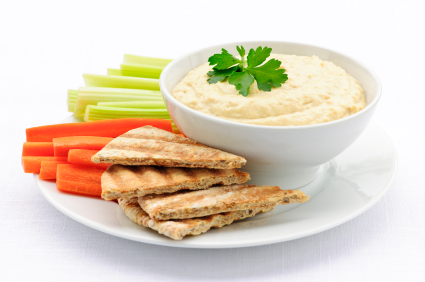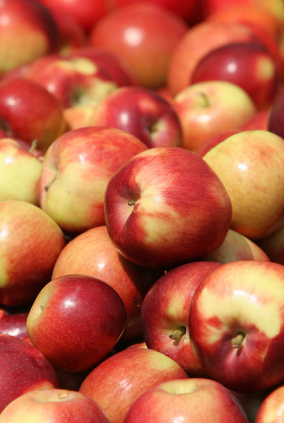Tired of struggling with weight loss and/or maintaining your weight? Eat a diet loaded with vegetables to cut back on calories easily and naturally! It helps you feel more satisfied physically and psychologically. It is a great strategy that curbs things like high calorie snacking, and going back for unnecessary seconds — which can sabotage your healthy eating plan.
Five Ideas for Adding More Vegetables to Your Day
1) Add an extra serving! Reach for two servings of steamed veggies with your protein and carbohydrate. Steam two different types of vegetables for variety!
Don’t have time to go to the farmer’s market? Buy frozen organic vegetables. They’re easy to cook, usually cost less, and you don’t have to worry about them going bad!
2) Eat more salad! Get a healthy serving of vegetables by having salad with one of your daily meals! It will keep you from overeating. Just be sure to measure the dressing carefully. Two tablespoons is usually a serving. Choose one hundred calories or less per serving when buying bottled dressings.
3) Add veggies to your entree! When cooking at home, pick “light” recipes that are loaded with vegetables. Some ideas are pastas, rice bowls, stir-fries, hearty broth-based soups, and stews. These can be veggie rich and still give you the protein and carbohydrates you need to fuel your body properly. Sites like Cooking Light and Eating Well are good resources for recipes.
4) Snack on them! Try cutting up veggies like carrots, cauliflower, broccoli, snap peas, & celery for go-to snacks. Serve them with a single serving of hummus, cheese, peanut butter, or light ranch dressing. Add a serving of pita bread or crackers to help you feel more full and get the carbs your body needs.
5) Have them for breakfast. Try adding vegetables to your morning fare. Add spinach or last night’s leftover steamed vegetables to scrambled eggs. Or, try putting raw spinach or arugula on an egg sandwich.
Like smoothies in the morning? Try adding kale, celery, cucumber, spinach, or parsley to your blended drink. If you’re too busy to make one, check your local grocery store for smoothies with vegetables in the ingredients. (Check out my friend Christiane Marshall’s smoothie recipe below.)
A healthy eating plan loaded with vegetables is one of the easiest ways to lose weight without dieting or feeling hungry. Add regular exercise and you have the best recipe for long term weight loss there is!
To your health and fitness!
Jennifer
Ginger Snap Kale Smoothie for Two or Three (by Christiane Marshall)
Green smoothies are an acquired taste, so I’m sharing a recipe with lots of options! Ginger gives this smoothie a little bit of a snap, so go slowly at first. Taste test it as you go along. (The beauty of ginger is both the taste and its ability to minimize inflammation. I use a lot of it.)
Blend all together: (Chop ingredients more finely if you have a challenged blender!)
1 to 3 cups of ice or water or coconut water (to taste) See tips below.
1 cup washed and chopped organic kale (or collards — kale is sweeter)
1/2 avocado for smoothness and healthy fat
1 cup fresh ripe mango (you can also use banana) for smoothness and sweetness
1/2 organic apple
1 small piece of fresh ginger (to taste)
1/4 cup of chopped celery (and/or carrots)
a pinch of Himalayan salt
Optional: 1 Tablespoon raw almond butter (makes it more hearty)
Tips:
1. Because the water in the fruit and vegetables vary, play around with the amount of liquid. Your texture preference matters too!
2. Begin with 1 cup of water, adding as you go. Blend till smooth with the least amount of liquid to get everything through the blades, but not so little that the blending stops. Add water to taste after everything is smooth.
Enjoy!


